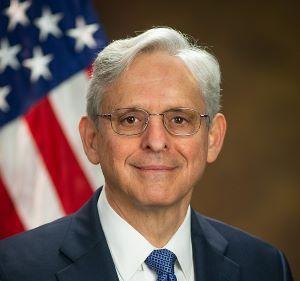The good, the bad, and the ugly in US domestic drug policy this year.

Drug overdoses hit a record high in 2022, but may have peaked. (Creative Commons)
According to Provisional Drug Overdose Death Counts released by the Centers for Disease Control and Prevention (CDC) in December, the nation's fatal drug overdose epidemic has peaked. After reaching a record high of more than 110,000 fatal overdoses in the 12-month period ending in March, that number declined to 107,735 in the 12-month period ending in July, the last month for which data is available. That is a two percent decline from the March high.
While the decline is welcome, drug overdose numbers are still 25 percent higher than they were two years ago and double what they were five years ago. According to the CDC, synthetic opioids, mainly fentanyl, were implicated in more than two-thirds of overdose deaths and stimulants such as methamphetamine and cocaine were involved in nearly one-third. But some fraction of stimulant-implicated overdose deaths are not caused by the stimulants themselves but by stimulant users being exposed to drugs cut with fentanyl.
2. Neither Marijuana Legalization nor Banking Access Pass Congress
Senate Majority Leader Chuck Schumer (D-NY) vowed to make passage of a marijuana legalization bill a priority in this Congress, but it didn't happen. While the House passed a legalization bill, the Marijuana Opportunity Reinvestment and Expungement (MORE) Act (HR 3617) in April, Schumer and congressional allies didn't even roll out a draft version of their Cannabis Administration and Opportunity Act until this July -- 18 months after this Congress began -- and it never exhibited enough bipartisan support to go anywhere in the evenly divided Senate.
Schumer and his Senate allies also repeatedly blocked efforts to get a bill to allow state-legal marijuana businesses access to financial services through the Senate. The Secure and Fair Enforcement (SAFE) Banking Act (HR 1996) passed the House in April, and Senate allies tried repeatedly to attach it as an amendment to various spending bills, only to be stymied by Schumer and his holdouts for full-blown legalization. At year's end, though, while Schumer was finally ready to move forward with it, Senate Minority Leader Mitch McConnell (R-KY) came out in opposition, helping to scuttle one last effort to tie it to a defense appropriations bill.
3. With Biden's Signature, A Standalone Marijuana Reform Bill Becomes Law for The First Time Ever
For the first time ever, Congress passed and in December the president signed into law a stand-alone marijuana reform bill, the bipartisan Medical Marijuana and Cannabidiol Research Expansion Act (HR 8454). Some marijuana reform measures have been passed before, but only as part of much broader appropriations bills. The aim of the bill is to facilitate research on marijuana and its potential health benefits. The bill will accomplish this by streamlining the application process for scientific marijuana studies and removing existing barriers for research by allowing both private companies and research universities to seek DEA licenses to grow their own marijuana for research purposes.
4. Three More States Legalize Marijuana
In May, Rhode Island became the 19th state to legalize marijuana when the General Assembly passed and Gov. Dan McKee signed into law the Rhode Island Cannabis Act. Sales to any adult over 21 at medical marijuana dispensaries that acquired "hybrid retail licenses" began in December.
And in November, voters in Maryland and Missouri approved marijuana legalization initiatives. Maryland's Question 4 came not from the people but from the legislature and amends the state constitution and mandates that the General Assembly "shall provide for the use, distribution, possession, regulation and taxation of cannabis within the state." Missouri's Amendment 3 overcame multi-sided opposition not only from the usual suspects in law enforcement and the political establishment but also from civil rights groups and marijuana industry insiders to eke out a narrow victory. As of December 8, possession of up to three ounces by adults is no longer a crime, but sales to adults will not begin until next year.
But there were also losses at the ballot box this year. The Arkansas Adult Use Cannabis Amendment garnered only 43.8 percent of the vote, while North Dakota's Initiated Statutory Measure No. 1 managed only 45.1 percent, and South Dakota's Initiated Measure 27 came up short with only 46.6 percent of the vote. The South Dakota defeat was especially bitter, given that just two years ago, voters there approved a broader marijuana legalization initiative with 54 percent of the vote only to see it invalidated by the state Supreme Court.
5. The Year of Fentanyl Test Strip Decriminalization
Fentanyl test strips, which detect the presence of the powerful synthetic opioid in all different kinds of drugs (cocaine, heroin, methamphetamine, etc.) and formulations (pills, powders, and injectables) are recognized by the Centers for Disease Control and Prevention as a valuable harm reduction strategy and are increasingly seen by the states as a crucial tool in the fight to reduce drug overdose deaths. When the Biden White House first endorsed their use in 2021, they were considered illegal drug paraphernalia in a majority of states.
Not anymore. As of the end of 2022, 31 states have now legalized or decriminalized fentanyl test strips, with Alabama, Georgia, New Mexico, Tennessee, and Wisconsin doing so this year alone. But that leaves 19 states, mostly in the South and including Florida and Texas where they remain banned.
6. Colorado Becomes Second State to Approve Natural Psychedelic Reforms
Three years after voters in Denver opened the door to psychedelic reform by approving a municipal initiative that made possession of psilocybin mushrooms the lowest law enforcement priority, voters statewide have approved an initiative that decriminalizes plant- and fungi-derived psychedelics and creates a program for the therapeutic administration of such substances. On Election Day, voters approved Proposition 122, the Natural Medicine Health Act, with 53.55 percent of the vote. The victory makes Colorado the second state to enact reforms decriminalizing a natural psychedelic and setting up a program for therapeutic use. Oregon voters led the way on that by approving Measure 109 in 2020.
Proposition 122 has two main prongs: First, it decriminalizes the personal use, possession, and cultivation by people 21 and over of dimethyltryptamine (DMT), ibogaine, mescaline (not derived from peyote), psilocybin, and psilocyn, as well as providing for the sealing of conviction records of people who have completed sentences for the use or possession of those substances. The measure sets no personal possession limits. Second, it creates a "natural medicine services" program for the therapeutic administration of the specified psychedelics and creates a rubric for regulated growth, distribution, and sales of those substances to entities within the program. Only psilocybin and psilocin would be okayed for therapeutic use until 2026. Then regulators could decide on whether to allow the therapeutic use of DMT, ibogaine, and mescaline.
7. Marijuana Social Consumption Lounges Spread
Ever since the first states legalized marijuana a decade ago, one question for users was where to go to smoke their newly legal product. Most states ban smoking outdoors in public or indoors pretty much anywhere except one's home -- and even that can be an issue if your landlord isn't down with it. One solution is allowing places for marijuana users to toke up in a convivial setting, the marijuana social consumption lounge, whether as part of a retail shop or as a standalone business.
Social consumption lounges are now legal in 11 states -- Alaska, California, Colorado, Illinois, Massachusetts, Michigan, Missouri, New Jersey, New Mexico, New York, and Nevada -- although they are not actually up and running yet in some of them. Massachusetts has two lounges now operating; in New Jersey, regulators just approved rules for them; in Nevada, regulators just issued 20 provisional licenses; in New York, they're still waiting for regulators to act; and in California, the state's dozen or so lounges are set to double in number as more localities okay them. Meanwhile, the nation's capital could be next: In the District of Columbia, the city council just approved a bill allowing them.
8. Safe Injection Sites Are Operating in the United States
Safe injection sites, the harm reduction intervention proven to save lives after years of operation in more than a hundred cities in Australia, Canada, and Europe, are finally getting a toehold in the US. New York City's two safe injection sites have just celebrated their first birthdays after opening in late 2021, and in Rhode Island, a two-year pilot program is underway.
But there will be no safe injection sites in California after Gov. Gavin Newsom (D) vetoed a bill that would have allowed pilot programs in major cities across the state. And the fate of a proposed Philadelphia safe injection site -- and the Biden administration's attitude toward them -- remains in doubt. That facility was initially blocked by the Trump Justice Department, and two years later, the Biden Justice Department has yet to substantively respond to lawsuit from the site's would-be operators. Just this month, a federal judge gave DOJ just 30 more days to respond. A positive response would remove the obstacle to further expansion of such sites that fear of federal prosecution brings. Meanwhile, the Congressional Research Service has thoughtfully released a report about other options for getting them up and running, such as passing budget amendments similar to those blocking the Justice Department from interfering in marijuana laws.
9. In DC and New York City, Gray Market Weed Finds a Way
In both the nation's capital and the nation's largest city, unregulated marijuana vendors have popped up to supply pent up demand as both cities endure legalization without legal marijuana sales. In New York City, it's only a matter of time before taxed, licensed, and regulators marijuana retailers are able to open, but in the interregnum between legalization and legal access, the pot scene has gone hog wild with marijuana being sold everywhere -- head shops, bodegas, even from folding tables on street corners -- with one particularly hysterical estimate putting the number at "likely tens of thousands of illicit cannabis businesses." The market isn't waiting for the regulators, and its emergence could undercut the legal businesses waiting in the wings. The city has undertaken limited enforcement efforts, but to little effect so far.
In Washington, DC, a congressional rider barring taxed and regulated marijuana sales has seen something similar, but with a DC twist: a multitude of shops that will "gift" you marijuana when you purchase some other item. The stores call themselves I-71 shops, after the 2014 initiative that legalized marijuana in the city and they even have their own industry association, which estimates there are a hundred or so of them. The city vowed a crackdown in August, but put that on hold the following month.
10. For the First Time, SAMSHA Funds Harm Reduction
In December 2021, the Substance Abuse and Mental Health Services Administration (SAMHSA) announced that it would for the first time ever make grants available to harm reduction groups to "help increase access to a range of community harm reduction services and support harm reduction service providers as they work to help prevent overdose deaths and reduce health risks often associated with drug use." SAMSHA would make available $10 million a year in grants for the next three years.
And this year, the first tranche went out. Some 25 different programs from the Lost Dreams Awakening Center in New Kensington, Pennsylvania, to the Mile High Council on Alcoholism and Drug Abuse in Denver, to the Los Angeles County Health Department got grants this year, almost all of them for $398,960. It's a drop in the bucket compared to federal spending on prohibition -- and compared to harm reduction's full funding needs -- but it's a start.
back to top
The White House announced last Friday that President Biden (D) had signed into law the bipartisan Medical Marijuana and Cannabidiol Research Expansion Act (HR 8454). The signing was historic; it marked the first time a president has signed a standalone marijuana reform bill into law. Some marijuana reform measures have been passed before, but only as part of much broader appropriations bills.

In a historic move, President Biden has signed a standalone marijuana reform bill into law. (whitehouse.gov)
With lead sponsors Rep. Earl Blumenauer (D-OR), head of the Congressional Cannabis Caucus, and Sen. Dianne Feinstein (D-CA) in their respective chambers, the bill passed by unanimous consent, first in the House and then late last month in the Senate.
The aim of the bill is to facilitate research on marijuana and its potential health benefits. The bill will accomplish this by streamlining the application process for scientific marijuana studies and removing existing barriers for researchers that frequently slow the research process. It will broaden marijuana research by allowing both private companies and research universities to seek DEA licenses to grow their own marijuana for research purposes.
The bill calls on the Department of Health and Human Services (HHS) to study potential therapeutic benefits of the plant, which could have an impact on a rescheduling review Biden ordered in October. But that HHS mandate also includes language requiring research on how marijuana may affect one's ability to drive and the impact of its use on teenage brains.
"Today marks a monumental step in remedying our federal cannabis laws," said Blumenauer and Cannabis Caucus co-chairs Dave Joyce (R-OH), Barbara Lee (D-CA), and Brian Mast R-FL) in a statement after the signing."We celebrate the enactment of this critical and long-overdue legislation, and we know there is much more to do to remedy the ongoing harms of the failed war on drugs."
Among the bill's cosponsors in the Senate was Sen. Charles Grassley (R-IA). Both he and Sen. Feinstein have been among the Senate's most ardent drug warriors going well back into the last century. While this bill is fairly conservative -- it does not directly address rescheduling marijuana or take up the question of access to financial services, let alone legalization -- that both Feinstein and Grassley back it is a sign of how far we've come.
"I've heard directly from Iowans who are desperately in search of treatment options for conditions like child epilepsy," Grassley said in a statement "Unfortunately, many families have resorted to using untested, unregulated derivatives from the marijuana plant as a last resort to treat these conditions. Since 2015, I've pushed to expand medical research into marijuana derivatives such as cannabidiol to better understand their benefits and potential harms. This research is a critical step toward ensuring safe and effective therapies are also consistently regulated like any other prescription drug."
"There is substantial evidence that marijuana-derived medications can and are providing major health benefits," Sen. Feinstein said in a statement. "Our bill will make it easier to study how these medications can treat various conditions, resulting in more patients being able to easily access safe medications. We know that cannabidiol-derived medications can be effective for conditions like epilepsy. This bill will help refine current medical CBD practices and develop important new applications. After years of negotiation, I'm delighted that we're finally enacting this bill that will result in critical research that could help millions," she added.
Now is the time to press for more reform, said Blumenauer.
"Finally, the dam is starting to break," he said in a separate statement. "The passage of my Medical Marijuana and Cannabidiol Research Expansion Act in the House and Senate represents a historic breakthrough in addressing the federal government's failed and misguided prohibition of cannabis."
"As we have seen in state after state, the public is tired of waiting for the federal government to catch up. Nearly half of our nation's population now live in states where adult-use of cannabis is legal. For far too long, Congress has stood in the way of science and progress, creating barriers for researchers attempting to study cannabis and its benefits. At a time when more than 155 million Americans reside where adult-use of cannabis is legal at the state or local level and there are four million registered medical marijuana users with many more likely to self-medicate, it is essential that we are able to fully study the impacts of cannabis use."
"The passage of this legislation coming just weeks after the change in President Biden's posture towards cannabis is extraordinarily significant. We must capitalize on this momentum to move subsequent common-sense House-passed bills like the SAFE Banking Act, which finally allows state-legal dispensaries to access banking services and reduce their risk of violent robberies."
There are, indeed, moves afoot to get the SAFE Banking Act passed during the remainder of the lame duck session, but time is running short and the clock is ticking.
back to top
As the lame duck congressional session ticks down toward its final days, not only have prospects for Senate Majority Leader Chuck Schumer's marijuana legalization bill faded into misty nothingness, even the more incremental but much clamored-for effort to provide state-legal marijuana businesses with access to the banking system remains undone.

marijuana shop robbery in Seattle (KOMO screen grab)
Despite being passed on multiple occasions in the House, the SAFE Banking Act (
HR 1996) has not managed to get a vote in the Senate, either as a standalone bill or attached to an omnibus appropriations bill. While Schumer and his pro-legalization Senate allies blocked consideration of the bill earlier in the session as they tried to build support for the further-reaching legislation, this week it was Republican Senate Minority Leader Mitch
McConnell who kept it out of the annual defense appropriations bill.
While Congress dithers, marijuana retailers, especially in the West, have been paying the price of having to operate with extremely limited access to the banking sector. As a new report from StoptheDrugWar.org (publisher of this newsletter) executive director David Borden demonstrates, that price is paid not only in stolen cash and traumatized employees and customers, but sometimes in lost lives. The report, Dangerous Delays: What Washington State (Re) Teaches Us About Cannabis Store Robberies analyzes some 165 armed robberies of marijuana shops in the state beginning in 2017, including a spate of nearly 100 reported robberies in a 4 ½ months beginning in late 2021.
"While SAFE was stalling in the Senate [last year], Washington State's cannabis community was in the grip of an unprecedented surge in armed robberies of cannabis stores," the report notes. "This occurrence, which began in November 2021 and lasted 4 ½ months, saw nearly 100 reported robberies affect roughly 80 cannabis stores, and ended with three people dead."
One of those killed was a marijuana shop employee; two were armed robbers.
The data on robberies comes from a unique resource, the "Uncle Ike's i502 Robbery Tracker." Uncle Ike's is a Seattle-area marijuana shop chain that has seen two of its stores victimized, one in White Center in 2018 and one in Lake City in 2021. Its list is compiled from media reports, police reports, and direct communication with store robbery victims.
The study analyzed robberies by whether they targeted cash or product or both; and for those that targeted cash, whether they aimed only at cash registers (front of the store) or safes (back of the store). It also examined the relationship between robbery targets and levels of aggression by robbers.
"Our analysis confirms that cash dominates as the target for cannabis store robberies," the report's executive summary says. "Product also plays an important role, but almost always in combination with cash; whereas cash on its own gets targeted in roughly 50 percent of the time, during the incidents for which we could determine what was targeted. Most burglaries, by contrast, appear to only target product."
The report also concluded that:
- Based on current incentives, there is little reason to believe that robberies targeting the back of a store will continue (as opposed to burglaries), or continue at the same level, if cash is removed from the equation. The great majority of such robberies are aimed at accessing cash in the safe, and without cash or with much less of it, that will no longer be lucrative.
- There will also be much less incentive to target the cash register at the front of the store, in the absence of strong profits there. Those are roughly half of the documented front-store robberies on Uncle Ike's. There's little reason to believe that front-store robberies targeting only cash will continue in that scenario.
- Data finds few examples of product-only robberies (as opposed to burglaries which are mainly product-only). That may suggest product alone does not provide enough incentive to sustain interest in doing robberies, particularly because burglary is a viable option to obtain the same product.
"Given what happened in Washington -- which could happen again -- it would be wholly unjustifiable for Congress to again put off enacting some form of the SAFE Banking Act," said Borden. "But there will be more left to do after Congress passes SAFE, for the robberies problem to be thoroughly addressed," Borden continued. "One remaining piece is to specifically greenlight purchase transactions, which is how cash enters the system. The current language of SAFE explicitly addresses only depository banking."
While the prospects for passage of the SAFE Banking Act grow dimmer each day, there remains the chance that the SAFE Banking Act Plus, which Schumer has been negotiating for the past several months and which also includes social equity provisions demanded by activists and some lawmakers, could move as a standalone measure before the session ends.
But if it doesn't move, the marijuana shops will remain at risk. There are steps that can be taken to ameliorate that risk, the report says.
"Security, worker training, and likely other factors, will continue to have importance for cannabusinesses, regardless of what happens with SAFE or further measures," the report states. "In the meanwhile, the cannabis community in other states can help, by duplicating the tracking effort pioneered in Washington by Uncle Ike's." Also, stores should improve employee training "with respect to emphasizing the reasons for cooperating with robbers and how to avoid escalating tensions in robbery situations."
States, for their part, should "provide funding for security measures to small and midsize cannabis stores," the report adds, and at the state and federal level, regulators should "review their policies with an aim toward facilitating greater adoption of electronic payment for cannabis stores."
Or Congress could just legalize marijuana.
12/16 report launch webinar:
back to top
Law enforcement officers and prosecutors systematically violate the constitutional rights of innocent property owners and interstate drivers, seizing cash and other valuable items without legitimate probable cause, which deprives individuals of much-needed funds in their possession. Police agencies seize additional property like vehicles, houses, businesses, and other tangible items, then auction these items off by executing a well-planned civil forfeiture lawsuit even if a person who owned the property or properties hadn't been convicted of a crime. State and local governments then split the proceeds with the law enforcement agency that made the seizure.
"In the United States, the basic tenet of the criminal justice system is that one is presumed innocent until proven guilty,"
wrote Rebecca Vallas and her team at the Center for American Progress. "However, over the past several decades, many thousands of people have had their property seized by the government without being charged with a crime."
That is civil -- as opposed to criminal -- asset forfeiture. Civil forfeiture law only requires prosecutors to prove a mere preponderance of the evidence, a lesser threshold than the beyond a reasonable doubt standard required in criminal cases. In practice, property targeted under civil forfeiture is usually seized unless the property owner hires an attorney to contest the proceeding, but people whose monies or properties have been seized often lack the means to challenge such actions.
Kevin Lawrence, executive director of the Texas Municipal Police Association, said the lower standard allows police to hit criminals in their pocketbooks even if they can't place them behind bars. "Civil asset forfeiture is intended to try and take a bite out of organized criminal syndicates by getting at their profit margin," he told KERA TV. "If we do away with civil asset forfeiture, who benefits the most? It's organized crime."
Documentation of thousands of asset forfeiture cases by the Institute for Justice (IFJ), a Washington, DC-based public interest law firm, challenges Lawrence's line because it found police confiscated small amounts of money from individuals instead of big hitters who are involved with organized crime which means not everyone who has their money taken is into high-level crimes. Many aren't guilty of anything except for having a substantial amount of cash when police erroneously profile them as criminals.
Forfeited assets including cash proceeds are lucrative for government and law enforcement agencies. In 2018 alone, reports IFJ, 42 states, the District of Columbia, and the federal government seized over $3 billion; $500 million was forfeited under state law and the government seized $2.5 billion within the Department of Justice and the Treasury forfeiture program.
IFJ is fighting tooth and nail against alleged abusive practices in Texas by filing a class-action lawsuit last year against the Harris County District Attorney's Office headed by elected Democrat Kim Ogg and Ed Gonzalez the elected Harris County sheriff.
"Texas has some of the worst civil forfeiture laws in the country, and what's driving this is the fact that police and prosecutors get to keep the property they seize. They can use it to buy better equipment, to buy better automobiles, and pay salaries, IFJ attorney Scott Bullock said more than a decade ago. Little has changed since then.
Ovid Ned can attest to Harris County's questionable seizure tactics. On January 31, 2016, Houston Police patrolmen stopped Ned while he was driving a new Jeep Compass in the 10700 Block of Bentley Street in far North Houston. Since Ned didn't have a state driver's license he was arrested on the spot. While conducting an inventory of the vehicle for towing purposes the officers discovered 26.98 grams of hydrocodone inside a pill bottle in the vehicle's glove box. Police confiscated $948.00 tucked in Ned's pants pocket. A charge of possession with intent to deliver hydrocodone was filed against Mr. Ned. As a bonus, the officers seized Ned's cash claiming the funds were the result of illegal narcotic sales.
But while he potentially faced a stiff prison sentence, Ned's luck was as hot as a pair of winning craps dice because a Harris County prosecutor dismissed the drug charge on June 15, 2016. To the prosecutor's surprise, Ned had a valid prescription for the hydrocodone, but in a second go-round, Ned crapped out. Harris County asset forfeiture prosecutors filed a case against his money and managed to grab every red cent without convicting the alleged member of the 5th Ward Circle Street gang of anything.
Houston Police stated in the seizure report they believe the cash was drug money because Ned was a documented gang member with a lengthy criminal history involving narcotics, and they further allege finding three boxes of plastic sandwich bags in the trunk of the vehicle.
Prosecutor Angela Beaver argued that Ned "was selling the pills." Beaver explained how opioid dealers often obtain several prescriptions from pain clinics.
"All they have to do to make the criminal case go away is to produce one of these prescriptions so that the possession is not illegal," Beavers said. "It does not mean the money seized is not contraband."
What Beavers failed to mention is all her office had to do was contact Ned's doctor to verify the authenticity of the prescription. Nor did Beavers show proof that Ned engaged in scouting for doctors to write bogus prescriptions to account for the drugs he possessed at the time he was arrested.
"Taking property without a criminal conviction is a violation of the owners' civil liberties," said IFJ attorney Arif Panju. "There is a principle of being innocent until proven guilty, and forfeiture just takes that and flips it on its head. That raises all sorts of constitutional problems."
The IFJ scored a victory at the US Supreme Court that limits forfeitures in state cases where the value of what is seized outweighs the seriousness of the connected crime.
US Supreme Court Justices Weigh In
US Supreme Court justices realize how civil forfeitures can become excessively punitive and that in such cases the constitutional protections must attach to balance the law. Forfeitures of property without proof of the owner's wrongdoing, merely because it was 'used' in or was an instrumentality of crime has been permitted in England and this country, both before, and, after the adoption of the Fifth and Fourteenth Amendments.
In the case of Leonard vs. Texas, Justice Clarence Thomas questioned: "whether the Court's treatment of the broad modern forfeiture practice can be justified by the narrow historical one."
Leonard vs. Texas entails a story of two men, vehicle driver James Leonard and passenger Nicosa Kane. Police stopped the men in Texas as they headed down an interstate known for heavy drug trafficking. When the officer saw a locked safe in the trunk he questioned the men about the contents of the safe. According to the officer, both men gave conflicting stories about the safe. James told the officer the safe belonged to his mother and that he was to buy a house in Pennsylvania. Once the safe was opened the officers discovered the mother lode, a cool $201,000. A bill of sale for a house was also found in the safe.
The state immediately seized the funds. Leonard's mother, Lisa Olivia Leonard, filed a lawsuit listing herself as the innocent owner of the cash-filled safe. At the trial court hearing, the presiding judge issued a forfeiture order meaning Ms. Leonard lost the cash. She appealed the verdict. Rejecting Leonard's innocent-owner defense the court of appeals, citing the suspicious circumstances of the stop and the contradictory stories between James Leonard and Nicosa Cane, court concluded that the government proved by a preponderance of the evidence that the money in the safe was either the proceeds of a drug sale or intended for such activity.
The US Supreme Court denied Leonard's petition for certiorari on March 6, 2017. No news reports are showing whether Leonard won her money back.
Meanwhile, states like Arkansas and Michigan have passed legislation to require that a person must first be convicted of a crime before forfeiture proceedings can start. Texas state Republicans and Democrats have proposed similar legislation.
Difference Between Criminal Law and Civil Forfeiture Asset Law
The key feature of Texas civil forfeiture law is how it shifts the burden of proof onto the person who had their property seized to prove their property wasn't connected to a crime. Unlike a criminal trial where the evidence is brought against an individual, in civil forfeitures, the government proceeds against the property (or seized cash) as if the property itself assisted in the commission of a crime.
For instance, when it comes to civil law forfeitures the government only needs to meet a lower preponderance of the evidence to snatch away someone's property which means a person can have their property taken without being convicted of a crime.
"Who could afford to have their life savings taken away for more than two years with no hearing and no opportunity to go before a judge?" asked IFJ Senior Attorney Wesley Hottot.
The Harris County District Attorney's Office has declined to comment publicly about the IFJ lawsuit.
Harris County DA Office Dismisses Dope Cases by Corrupt Houston Police Narcotic Officers And Keeps the Seized Tainted Cash
Harris County prosecutors in Houston dismissed numerous drug cases and recommended the reversal of the cases of other defendants arrested by terribly corrupt Houston police narcotic officers Gerald Goines and Stephen Bryant, the narco officers responsible for one of Houston's most scandalous acts of sheer violence when Goines lied to obtain the January 2019 search warrant that led to the shooting deaths of two innocent people, 59-year-old Dennis Tuttle and Tuttle's wife, 58-year-old Rhogena Ann Nicholas. They were gunned down by police after Goines fabricated a search warrant and executed the same warrant at the couple's home.
Goines claimed his informant purchased heroin from the couple when no informant had entered the home and made a drug buy. Five additional officers were shot during the raid as well as what became the sensational, deadly raid on Harding Street in the East End of town. There have been at least three dozen instances in recent years when Goines' Narcotics Squad #15 seized lots of cash, jewelry, and vehicles based on misleading statements and even outright lies to justify narcotic search warrants.
Despite the criminal cases being dropped or dismissed, the Harris County Civil Asset Forfeiture Division still seized the "crime-tainted" cash and property. For example, on July 24, 2018, Andrew Hebert, of 4524 Alvin Street in Houston was strolling over to his 2017 Buick Lacrosse parked in the driveway when police swarmed him like flies. Narcotic officers Goines and Bryant said they saw Hebert make a hand-to-hand dope delivery to an individual. A search of Hebert's residence yielded assorted narcotics and $10, 965.00. Police seized the funds and Hebert had a second seizure of $1,765.00. When news broke about the scandal involving Goines and Bryant's involvement in the death of the East End couple the District Attorney's Office dropped the dope case against Hebert but still, the prosecutors kept his money.
The same thing happened to Christopher White's $2,465 and Andre Thomas's $2,700. Criminal charges were dropped due to Goines's involvement in their narcotics cases, but they never saw the money again. Goines and Bryant are facing a laundry list of federal civil rights criminal charges ranging from obstruction of justice, making false statements, falsifying records, and depriving the deceased victims of their constitutional right to be secure against unreasonable searches. State charges against Goines include first-degree murder. That trial remains pending.
Transporting Cash to Buy a Truck Isn't a Crime
Included in the Institute for Justice class action lawsuit is the case of Ameal Woods and Jordan Davis from Natchez Mississippi, who lost $42, 300 to Harris County Civil Asset Forfeiture Enforcement. Ameal Woods was traveling from Natchez to a suburb outside Houston called Katy, Texas, -- when he happened to encounter a Harris County Sheriff Patrol Sergeant on May 19, 2019. The sergeant pulled Woods over in the 2300 block of I-10 driving a new Nissan Sentra for allegedly "following a tractor-trailer too closely."
The Sergeant allowed Woods to sit in his patrol car while he checked Woods' license and prepared a warning citation. As these transactions took place, the sergeant wrote the following in his offense report: "Mr. Woods was having facial tremors, labored breath, shifting around in his seat, licking his lips and belching, all signs of stress," the officer wrote in his report.
Whether the officer first asked Woods if he was transporting dope or money or if anything out of the ordinary triggered the officer's suspicion remains unclear. In the officer's report, he said that Woods claimed to be carrying $30,000 in his rented vehicle and that his girlfriend Jordan Davis rented the car. Woods said the money was to buy a used tractor-trailer to expand his trucking business back home in Mississippi.
The deputy recovered the money wrapped in separate packages. When asked where he got the funds Woods said his wife gave him part of it, and that a niece loaned him some as well. The deputy also claimed Woods had explained to him that his girlfriend Jordan Davis had given him part of the money from her tax returns.
To verify Woods's story, the deputy sergeant said he called Jordan Davis from his cell phone while sitting on the road with Ameal Woods and that Davis said she hadn't gotten her tax return yet. Ameal Woods denied his girlfriend had talked with the sergeant about her tax return. Once the money was taken, the sergeant gave Woods an incident report number detailing the seizure and Woods was cut loose at the scene.
Ameal Woods recalled seeing no drug dog at the scene. But in a final seizure report submitted to the county by a different deputy, the deputy stated a drug dog made a hit on the money Woods was carrying, which means the dog detected an odor of illegal drugs on the seized money.
National Geographic and several more prominent news media outlets reported in 2009, that a definitive study showed "Nearly nine out of ten bills circulating in the United States are tainted with cocaine." In 1994, the US 9th Circuit Court of Appeals determined that in Los Angeles, out of every four banknotes, on average more than three are tainted by cocaine or another illicit drug.
Questions swirled among the IFJ attorneys as to why it took slightly over two years before the Harris County District Attorney's Office in Houston served Ameal and Jordan with legal notification of the forfeiture.
IFJ attorneys said there is a scheme by Texas lawmen and the District Attorney's Office to take cash from travelers without legit probable cause, particularly if the individuals are African Americans and Mexicans.
Forfeiture Complaints Raise Suspicion
What infuriates the IFJ attorneys was the suspicious composition of the forfeiture complaint by a Harris County Deputy Sheriff identified as Greg Nason, who, according to the lawsuit "was not at the scene when the money was seized from Ameal Woods."
The Attorney's investigation uncovered more peculiar activities. Unsurprisingly, IFJ attorneys identified 113 seizure affidavits rife with errors and misspelled words "written by an officer who was not at the time and place of seizure." At least 80 of those affidavits were written by the same Officer Greg Nason. Just as the discovery of some of the poorly worded sentences wasn't enough, the attorneys noticed 'cut and paste' testimony with different fonts, and erroneous dates and the deputy even referred to tangible cash when the seized property was a vehicle.
Dog Makes Alert on Proceeds Later; Not At The Scene
IFJ attorneys also discovered 92 cases (including the Ameal Woods case) where a drug dog reportedly alerted "after police seized property." The key word is "after" the incident took place, not at the scene. Ameal assured his attorneys that no dog sniffed his money at the scene.
"The government cannot copy-and-paste its way to probable cause," said IFJ. Managing Attorney Arif Panju. "Probable cause means more than simply having a large sum in cash and an after-the-fact dog alert."
Retired Harris County Sheriff Department Narcotic Detective Joe Harris told Drug War Chronicle, "Unless there was an ongoing investigation that hasn't been revealed, what we used to do is if we target a person for carrying lots of money, money suspected to be from selling drugs we would have a dog come to the scene to see if the dog hit on the money. If the dog hits on the money we seize it right then", not later on unless a person is arrested with drugs and carrying money at the same time," Harris said.
Harris went on to explain that when a dog makes a hit on a vehicle this is when to get a warrant to search for narcotics.
Between 2018 and 2020, the Harris County District Attorney Forfeiture Division collected $15.9 million in forfeiture revenue. Over $7.5 million was spent on police salaries and overtime.
Texas Gunslingers Battle for Reform
Harris County prosecutors in Houston unified with their compatriots in law enforcement against proposed laws to restrict civil asset forfeiture over the last few years. Several bills have been filed in the state's legislature by Democrats and Republicans to prevent Texas prosecutors from seizing citizens' money and other assets unless they'd been convicted of a crime.
During one 2019 legislative hearing at the state capitol in Austin, Harris County Civil Forfeiture prosecutor Angela Beaver said criminal charges were filed in all but 5% of Harris County seizure cases in 2018. State Rep. Harold Dutton (D-Houston), who has filed legislation to require convictions for forfeiture. Scoffed at Beavers' numbers.
"I'm going to tell you as a practicing lawyer in Harris County, I don't think you're being honest with this committee," he said.
"Well, we have the stats," she shot back.
But a study of Harris County statistics by the Texas Tribune suggested the prosecutor's numbers were wrong. The Tribune found that during the first six months of 2016, 15 percent of asset seizures did not include criminal charges connected to the stated reason for the seizure -- such as a drug crime -- and nearly 40 percent of seizures did not result in a related conviction or guilty plea.
Proposed Changes to Modify the Way Property is Seized in Texas
To add an extra boost to eliminate civil asset forfeitures against a person's property, although the person hasn't been criminally convicted in a court of law, State Rep. Senfronia Thompson (D-Houston) and then-Republican Senator Konni Burton filed identical bills requiring law enforcement and prosecutors to secure a criminal conviction before property can be legally seized, instead claiming the seized property was more likely than not connected to a crime.
Texas Civil asset forfeiture law needs much reform to equal the playing field for defendants to have a better shot at proving their money or property wasn't intended for criminal activities. The biggest stake in the foray is how prosecutors and law enforcement abuse civil forfeitures to tilt the scales in their favor and undermine the constitutional rights of American citizens.
Democratic State Reps. Harold Dutton and Senfronia Thompson will attempt to re-introduce House Bill 251 in the legislative session beginning in January 2023, to reform Texas civil asset forfeiture Law. Their goal is to make it so that state prosecutors must first convict a person in criminal court to legally seize the individual's property that may or may not be connected to the crime with which they were charged.
Drug War Chronicle contributor and news reporter Clarence Walker can be reached at [email protected]
back to top
A marijuana research bill becomes law, the SAFE Banking Act doesn't, and more.]
NationalMarijuana Banking Reform Dead in This Congress. Efforts to provide state-legal marijuana businesses with access to banking and financial services have come to naught in this Congress. The push has been on to get the SAFE Banking Act (HR 1996) through the Senate after it passed the House on seven different occasions, most recently in July. But Senate Majority Leader Chuck Schumer (D-NY) never called it for a vote and he and his Senate allies repeatedly blocked it from being attached to various spending bills as they held out for a full-blown legalization bill. One last chance for the act was the omnibus spending bill passed Tuesday, but it didn't include the act, either. This time, though, it was blocked not by Schumer but by Senate Minority Leader Mitch McConnell (R-KY).
SAFE Banking Act Plus Effort Set for Next Year. Supporters of the SAFE Banking Act (HR 1996) struck out in this Congress, but are determined to get an enhanced version of the bill passed next year. The SAFE Banking Act Plus will contain "important expungement and second amendment rights provisions," said bill sponsor Sen. Jeff Merkley (D-OR). Although the last chance to get the bill passed this year was blocked by Republican Senate leaders, Merkley said, the SAFE Banking Act Plus was a "must pass" in 2023. "We've made so much progress on forging bipartisan consensus,"Merkley said, adding that he "won't rest until we get it done."
Kansas
Kansas Lawmakers Plan to Introduce Medical Marijuana Bill at Start of Session Next Month. Since the end of the last legislative session, members of the Special Committee on Medical Marijuana have been meeting, compiling data, and evaluating research, and now they say they are ready to file a medical marijuana bill at the beginning of the session beginning next month. "I think what I'm going to do is -- and any member is more than welcome -- is to take this information and create the bill," said. Sen. Rob Olson (R-Olathe), chair of the medical marijuana committee. "And I'm going to work on a bill with a couple members and then if anybody wants to sign on in the Senate, they'll be more than able to sign onto that bill and introduce it at the beginning of session." He also called on House lawmakers to file similar legislation. "I think that's probably the best way forward," Olson said. Kansas is one of the 13 states that have still not legalized medical marijuana.
back to top
A small-town Pennsylvania police chief had a bad habit, an Indiana cop gets caught stealing dope from DEA Drug Take Back campaign, and more. Let's get to it:
In Spencer, Indiana,
a Spencer police officer was arrested last Friday for stealing drugs collected during a DEA Drug Take Back campaign. Officer James Bradley Deckard, 39, went down after the state police Investigation Section looked into allegations an officer had taken the drugs. Deckard is charged with official misconduct and theft, both Level 6 Felonies.
In Pittsburgh, Pennsylvania, a former Elizabeth Borough police chief pleaded guilty Tuesday to stealing drugs from an evidence locker. According to federal prosecutors, former Chief Timothy Butler "stole hundreds of bricks and bundles of heroin from the Elizabeth Borough Police Department for his own personal use," and Butler admitted in court that he stole and used the heroin. He pleaded guilty to one count of theft of government property. Butler also pleaded guilty to state charges in August 2019 that included two counts of theft, one count of drug possession, and one count of obstructing the administration of justice. He was sentenced to 55 months' probation on the state charges. He faces sentencing on the federal charge in April.
In Clarksburg, West Virginia, a former state prison guard was sentenced last Wednesday to a year and a day in prison for selling drugs to inmates. Joshua Quinn had pleaded guilty in October to one count of possession with intent to distribute methamphetamine and buprenorphine.
back to top
The US Pardon Attorney says federal marijuana pardon certificates are coming soon, an Irish parliament committee calls for drug decriminalization and regulation, and more.

Cocaine seized before it could reach its European market. (defensa.gob.es)
DOJ Official Details Plans to Provide Presidential Marijuana Pardon Certificates. US Pardon Attorney Elizabeth Oyer said Tuesday that people seeking presidential pardons for past federal marijuana convictions would soon get the opportunity to obtain certificates to do so, and that the application process should take less than ten minutes. Oyer noted that President Biden's recent pardon of some 6,500 federal marijuana offenders was "self-effectuating," meaning the pardons went into effect as soon as Biden announced them, but Biden's pardon proclamation directed the Justice Department to follow up with a certification process. The process is "very far along" and the certificates should be ready "soon," she added.
Opiates and Opioids
SAMHSA Proposes Update to Federal Rules to Expand Access to Opioid Use Disorder Treatment and Help Close Gap in Care. The Department of Health and Human Services (HHS), through its Substance Abuse and Mental Health Services Administration (SAMHSA), is proposing to expand access to treatment for opioid use disorder (OUD) at a time when more than 107,000 Americans lost their lives to an overdose last year.
The proposal would update federal regulations that oversee OUD treatment standards, specifically 42 CFR Part 8, by allowing take home doses of methadone and the use of telehealth in initiating buprenorphine at opioid treatment programs (OTPs). Goals include providing greater autonomy to OTP practitioners, supporting recovery, and continuing the move toward flexibility in OTP that was extended at the start of the COVID-19 pandemic.
International
Irish Parliament Justice Committee Recommends Drug Decriminalization, Legalization. The Oireachtas (parliament) Justice Committee has recommended a host of changes to Ireland's drug policy, including examining legalizing and regulating some drugs, notably marijuana, and decriminalizing others. In its new report, the committee called for a three-pronged approach -- decriminalization, exploring drug regulation, and improving existing addiction services.
"There's already a commencement on that journey [of decriminalization], we've seen that in recent years but that policy should be doubled down on and accelerated," said committee Chair James Lawless. He also argued that a "managed market" could make drugs safer than the existing black market. "In the regulation would be a concept of actually having a commercial product and having the product available, which can be monitored, managed, licensed, weighed, tested for compliance, for safety, for content in a way that it clearly is not at the moment," he said.
Europe's Biggest Port Drowning in Cocaine. The port of Rotterdam, Europe's largest, saw nearly 70 tons of cocaine seized in 2021, up 74 percent over 2020, according to Dutch customs. Rotterdam and the nearby Belgian port of Antwerp were the two main ports used by a Dubai-based "super cartel" allegedly supplying a third of Europe's cocaine. That group was busted last month, but the flow of cocaine is expected to continue. "It seems there are lots of buyers" in Europe," said Customs officer Ger Scheringa. "And if there is demand, it is supplied."
Mayor Ahmed Aboutaleb said the city is "drowning in cocaine" and deplored the violence that has accompanied the black market drug trade. Aboutaleb wants all ships coming from Latin America scanned, but that runs up against the imperatives of business. "The biggest challenge is to find a good balance between the speed of logistics for the port, and checking everything you want," said Scheringa.
back to top
Some Texas town officials are trying to run roughshod over the will of the voters on marijuana enforcement, sponsors of the SAFE Banking Act are not giving up hope yet, and more.

State-legal pot businesses seek access to financial services through the SAFE Banking Act. (Creative Commons)
Last Minute Push for SAFE Banking Act. With the curtain about to close on the current Congress, Senate sponsors of the SAFE Banking Act (HR 1996) are still trying to get the bill passed. Sens. Jeff Merkley (D-OR) and Steve Daines (R-MT) tried and failed to get the bill attached to the National Defense Authorization Act, but now they're trying to get it attached to the omnibus funding bill, but again face Republican opposition, including from Senate Minority Leader Mitch McConnell (R-KY). Nine Republicans have previously sponsored the bill, but it would need 10 votes to overcome a filibuster. Earlier in the session, the bill was blocked by the Democratic leadership, which was holding out for a comprehensive marijuana legalization bill.
New Hampshire Lawmakers Filed Marijuana Legalization Bill. Incoming Democratic House leader Matt Wilhelm (D-Manchester) is a main sponsor of a new marijuana legalization bill filed in the House last week. The bipartisan bill would legalize marijuana for people 21 and over and set up a system of taxed and regulated retail sales. While similar bills have failed in years past, Wilhelm said it is "long past" time for the state to stop "wasting scarce tax dollars and valuable local and state policing resources by continuing a restriction that has failed for decades and needlessly ruined the lives of many young and poor Granite Staters."
Texas Towns Seek to Undo Will of Voters on Marijuana Ordinances. Voters in five Texas towns and cities approved ending criminal enforcement of marijuana prohibition by voting for local ballot measures that ban arrests and tickets for possessing less than four ounces of weed. But elected officials in those localities are balking, with some saying the effort violates state laws and hinders police officers.
In Harker Heights, the city council repealed the ordinance two weeks after the vote. In Killeen, the Bell County DA attempted to undo the ordinance, but the city council approved it anyway. In San Marcos, the Hays County Criminal DA has asked for the state attorney general's opinion about enforceability of the ordinance, while in Denton, the city council certified the initiative, but the city manager opposes implementing part of it.
back to top
Kansas City, Missouri, dismisses open marijuana cases, Colombia Congress advances marijuana legalization bill, more...

Attorney General Merrick Garland (DOJ)
Tennessee Lawmaker Will File Marijuana Legalization Bill. State Sen. Heidi Campbell (D-Nashville) said last Friday she plans to cosponsor a marijuana legalization bill with Rep. Bob Freeman (D-West Nashville) in the coming session. Previous attempts at passage of such a bill have come up short, but Campbell is ready to try again: "We're filing a full legalization bill," Campbell said. "We are in the process of modifying our last bill and haven't filed it yet."
Kansas City Dismisses Hundreds of Marijuana Cases Following Statewide Legalization Vote. Municipal court workers in the Missouri city have "dismissed over 500" open marijuana cases since statewide marijuana legalization took effect on December 8. Voters statewide approved legalization in the November election. City officials depenalized pot possession in 2020 and had already dismissed over 2,400 marijuana cases. They now report no remaining open marijuana misdemeanor cases in the city.
Opiates and Opioids
Senate Passes END FENTANYL Act in Bid to Reduce Drug Smuggling. The Senate last Thursday passed SB 4460, the "Eradicating Narcotic Drugs and Formulating Effective New Tools to Address National Yearly Losses of Life (END FENTANYL) Act." This legislation would require the Commissioner of US Customs and Border Protection (CBP) to update agency policies at least once every three years, and require the Commissioner of CBP to review and update the Office of Field Operations' policies and handbooks at least once every three years. It would also require the Commissioner to report to the Committee on Homeland Security and Governmental Affairs of the Senate and the Committee on Homeland Security of the House of Representatives about the changes.
Sentencing Policy
US Attorney General Moves to End Crack/Powder Cocaine Sentencing Disparities. In a memo to federal prosecutors last Friday, Attorney General Merrick Garland instructed them to file charges that avoid mandatory minimum sentences that are triggered by small amounts of crack cocaine in small-time, nonviolent cases. For decades, crack has been treated more harshly in federal sentencing even though there is no scientific basis for it, and that has led to "unwarranted racial disparities," Garland wrote. "They are two forms of the same drug, with powder readily convertible into crack cocaine."
But Garland's move could last only as long a his tenure in office. To permanently end sentencing disparities between the two forms of the drug, Congress would have to act. The House passed such a bill last year, and there are still hopes that the Senate will pass its version of the bill, S.2156, as part of an omnibus appropriations bill before the current session ends.
International
British Columbia Drug Decriminalization to Last for Three Years. The decriminalization of the possession of up to 2.5 grams of drugs such as heroin, methamphetamine, an cocaine in the Canadian province, which was granted by the federal government as an emergency measure in the face of an overdose epidemic, has now been set to begin on January 31, 2023, and will be extended until January 31, 2026. The BC Coroners Service reports 1,827 fatal drug overdoses so far this year.
Colombia House and Senate Agree on Marijuana Legalization Bill. The Chamber of Representatives and the Senate have both voted to reconcile their differing versions of a marijuana legalization bill, clearing the way for final votes to come early in the new year. The bill must again pass both chambers because it is a constitutional amendment, and a key Senate sponsor of the bill says it should be formally enacted by June. In final negotiations, lawmakers agreed to limit marijuana consumption and marketing in public spaces and near school zones. They also agreed to have the law go into effect 12 months after final passage.
back to top
The marijuana industry will remain without access to many services after Congress failed to act this year, the GAO looks at how the drug czar's office is performing, and more.
Marijuana Banking Reform Dead in This Congress. Efforts to provide state-legal marijuana businesses with access to banking and financial services have come to naught in this Congress. The push has been on to get the SAFE Banking Act (
HR 1996) through the Senate after it passed the House on seven different occasions, most recently in July. But Senate Majority Leader Chuck Schumer (D-NY) never called it for a vote and he and his Senate allies repeatedly blocked it from being attached to various spending bills as they held out for a full-blown legalization bill. One last chance for the act was the omnibus spending bill passed Tuesday, but it didn't include the act, either. This time, though, it was blocked not by Schumer but by Senate Minority Leader Mitch McConnell (R-KY).
Psychedelics
California Psychedelic Decriminalization Bill is Back. Four months after state Sen. Scott Weiner (D-San Francisco) pulled his bill to decriminalize certain psychedelics when it was gutted in committee, the bill has been refiled. Senate Bill 58 would decriminalize magic mushrooms and ayahuasca -- but not LSD or MDMA -- and is being backed by veterans and mental health professionals. The bill decriminalizes only plant- or fungi-based psychedelics.
Drug Policy
GAO: Office of National Drug Control Policy Met Some Strategy Requirements but Needs a Performance Evaluation Plan. The Government Accountability Office reported Monday on the performance of the Office of National Drug Control Policy (ONDCP -- the drug czar's office) and found that the 2022 strategy "fully met some legal requirements, including setting long-range, measurable goals to address drug misuse. The Strategy partially met others related to identifying the resources to treat substance use disorders. But, it didn't include a systematic plan for increasing data collection."
Also, "The 2022 Strategy and accompanying documents vary in their level of compliance with selected statutory requirements. The Strategy fully met some requirements, including those related to comprehensive, long-range, quantifiable goals, and targets to accomplish those goals. The Strategy partially met other selected requirements, including those related to identifying resources for the treatment of substance use disorders. The Strategy does not address some statutory requirements, including some related to future planning. For example, the Strategy is to contain a systematic plan for increasing data collection, including to enable real time surveillance of drug control threats. However, as of December 2022, ONDCP has not created such a plan. GAO recommended in 2019 that ONDCP routinely implement an approach to meet the requirements for the 2020 Strategy and future iterations. Doing so will better position ONDCP to ensure that future strategies completely address all of the statutory requirements."
back to top
Grenada is moving forward with multiple reforms, two new state polls show strong support for marijuana legalization in Indiana and Texas, and more.

Grenada. The Caribbean island nation is moving on marijuana reforms. (state.gov)
Indiana Poll Has Overwhelming Support for Medical Marijuana, Strong Support for Legalization. A new Indiana Public Broadcasting-Ball State Hoosier Survey has support for medical marijuana at 85 percent, with 56 percent of Hoosiers also supporting marijuana legalization. The state's Republican-controlled legislature has so far fended off any moves toward legalization or even medical marijuana, even as popular support for marijuana reform has been increasing. "Thinking back to past Hoosier Surveys we’ve done, that number has just been creeping up," said Ball StateBowen Centers for Public Affairs Director Chad Kinsella. "So, I think it’s just kind of the floodgates are opening at this point."
Texas Poll Has Majority Support for Marijuana Legalization. A new University of Texas/Texas Politics Project poll finds support for marijuana legalization at 55 percent, support for decriminalization at 72 percent, and support for medical marijuana at 83 percent. Democrats and independents supported both decriminalization and legalization, but among Republicans, who control the state legislature, only 41 percent favored legalization.
International
Grenada to Move to Legalize Medical Marijuana. Minister for Agriculture and Lands Sen. Adrian Thomas announced Tuesday that the Grenadian government intends to present legislation to legalize medical marijuana by next December. "In January we will be opening a secretariat so that the necessary work can be done," said Thomas, who is also Leader of Government Business in the Upper House. "There will be extensive consultation with the general public, involving education programs, because our people must understand what this industry is all about. We want them to be part of it. In 12 months' times, the necessary legislation will be put in place and we will be ready to cultivate and process the necessary products from the cannabis," he said. In September, the government named a 12-member Commission on Cannabis Legalization and Regulation, whose task includes holding broad-based consultations and engage in public awareness on the policy decision to legalize cannabis within a legal and regulatory framework. Parliament is also currently considering whether to decriminalize the possession of up to an ounce for people 18 and over, as well as allowing the home cultivation of up to five plants.
Pakistan National Assembly Votes to Abolish Death Penalty for Drug Offenses. The National Assembly approved the Control of Narcotics Substance Amendment Bill 2022 on Tuesday, abolishing the death penalty for people involved in drug dealing and replacing it with life imprisonment. The vote came after Law and Justice Minister Azam Nazeer Tarar told members that the death penalty under the Control of Narcotics Substance Act was used in an inappropriate manner, adding that it was a violation of basic human rights.
back to top
New York legal recreational marijuana sales are set to begin next week, Maryland's incoming Democratic governor says expunging past pot convictions will be a priority, and more.

crack cocaine (Argv0, https://commons.wikimedia.org/w/index.php?curid=44743583)
SAFE Banking Act Plus Effort Set for Next Year. Supporters of the SAFE Banking Act (HR 1996) struck out in this Congress, but are determined to get an enhanced version of the bill passed next year. The SAFE Banking Act Plus will contain "important expungement and second amendment rights provisions," said bill sponsor Sen. Jeff Merkley (D-OR). Although the last chance to get the bill passed this year was blocked by Republican Senate leaders, Merkley said, the SAFE Banking Act Plus was a "must pass" in 2023. "We've made so much progress on forging bipartisan consensus," Merkley said, adding that he "won't rest until we get it done."
Maryland Governor-Elect Says Marijuana Expungements Will Be a Top Priority. In November, state voters approved marijuana legalization and elected a new governor, Democrat Wes Moore. The legislation goes into effect July 1, 2023 and includes provisions for the expungement of thousands of past marijuana convictions. Governor-Elect Moore is now saying getting those expungements done will be a priority of his administration.
New York Governor Announces First Recreational Marijuana Sales Will Begin Next Week. Gov. Kathy Hochul (D) announced Wednesday that the first adult use marijuana sales will begin one week from today. State regulators had pledged to get the recreational market launched before year's end, and they will just barely meet that goal.
"We set a course just nine months ago to start New York's adult-use cannabis market off on the right foot by prioritizing equity, and now, we're fulfilling that goal," Hochul said. "The industry will continue to grow from here, creating inclusive opportunity in every corner of New York State with revenues directed to our schools and revitalizing communities. The first shop to open will be run by Housing Works, a nonprofit that provides HIV/AIDS services. Thirty-five more shops have also received licenses to begin operations.
Sentencing Policy
Bill to End Federal Crack Cocaine Sentencing Disparity Left Out of Last Chance Spending Measure. A bill that would have permanently eliminated the sentencing disparity for federal crack and powder cocaine offenses, the EQUAL Act (HR 1963) is dead after it was left out of a must-pass omnibus funding bill that was approved this week. The long-lived 100:1 sentencing disparity was reduced to 18:1 by Congress in 2010, and last week, Attorney General Merrick Garland issued a memo that instructs prosecutors to effectively end the disparity by not charging mandatory minimum offenses.
Senators thought they had a deal to include the act in the omnibus bill, but Sen. Chuck Grassley (R-IA) blamed Garland's action for getting the bill scuttled. "That hard-won compromise has been jeopardized because the attorney general inappropriately took lawmaking into his own hands," Grassley said. But Garland's memo does not have the force of law and could be reversed by a future attorney general.
back to top











